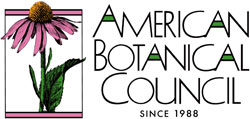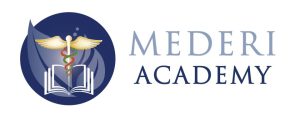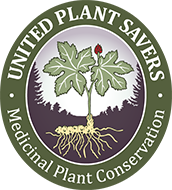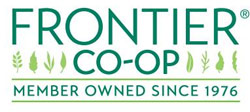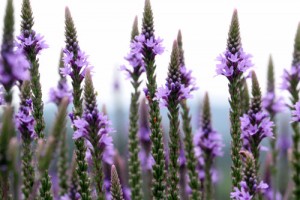 Our CNE application has been approved for a total of 21.5 possible contact hours for select lectures (by the Western Multi-State Division, an accredited approver by the American Nurses Credentialing Center’s Commission on Accreditation).
Our CNE application has been approved for a total of 21.5 possible contact hours for select lectures (by the Western Multi-State Division, an accredited approver by the American Nurses Credentialing Center’s Commission on Accreditation).
We have been working with an experienced nurse-planner to assemble a varied program of clinical lectures and workshops which meet the new criteria established by the ANCC in 2015.
We welcome you to this new program of continuing nursing education (CNE) at Medicines from the Earth. Please note that not all lectures qualify and contact hours depend on the number of lectures attended. See the listings below for contact hours approved for select lectures.
Friday June 2
Pre-conference Events — Choose 1:
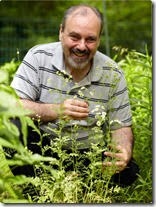
10:00 AM – 3:00 PM — 4.5 Contact Hours
Ethnobotanical and Native Plant Field Study
David Winston, RH(AHG)
Examine the unique flora of the southeastern mountains and hear stories of creation and the origin of medicine. Discover how the medicine, food and useful materials provided by the plants have nurtured the Native peoples and Appalachian settlers for millennia. Explore the healing power of the herbs, the water, the earth, the trees and how you can make them a part of your life. ($65)
Read More
OR

1:00 PM – 5:00 PM — 3.75 Contact Hours
Pre-conference Intensive: Immuno-psychiatry– Immune System Influences on Mental Health and Innovative Therapies for Restoring Balance
Kenneth Proefrock, ND
New research seems to point to an exciting theory that inflammation and immune dysfunction is a strongly contributing factor to mental illness. This presentation describes the effect of the immune system on neurotransmitter and hormonal functions affecting our mental well-being. We contrast this with the current pharmaceutical models and theories of treatment for depression/anxiety, dysthymia, bipolar disorder, OCD, PTSD, substance abuse and schizoaffective disorders. We then consider dietary, botanical and lifestyle alternatives for healing. Presents strategies for weaning from psychotropic medications, when that might be appropriate. ($79) Read more about this intensive.
Saturday June 3
9:30 AM – 11:00 AM — 1.5 Contact Hours — Choose 1:
Degenerative Joint Disease – Research for Building Connective Tissue using Bone Broth
Jill Stansbury, ND
Back pain, knee and hip replacements, and arthritic degeneration are challenging conditions that often result in surgical interventions and prescriptions of harmful pain-relieving medication for life. Nutritional approaches to protecting, and optimally rebuilding, connective tissue and bone are of great value. This session summarizes research on the bone-derived nutrients glutamine, chondroitin, glucosamine, glycine and hyaluronic acid, and emphasizes ways to obtain these nutrients from homemade broths and complementary medicinal foods.
OR
Inflammatory Processes and Immune Influences on the Brain–Implications for Mental Health
Jerry Cott, PhD
We discuss recent theories describing the effect of chronic inflammation on the brain and its function. Treatment with pharmaceutical anti-inflammatory drugs may not be suitable, since they can be much too toxic for chronic use. The anti-inflammatory effects of certain botanicals and other natural products, their effects in mental health, and their safety for chronic use are described.
OR
Resetting the 24 Hour Circadian Cycle, Part 1: The Health Effects of a Circadian Cycle out of Balance
Mary Bove, ND
A review of the physiology related to the 24-hour circadian cycle and how a disruption can lead to many of the health challenges of the modern day. There are patterns of brain wave activity, hormone production, cell regeneration, and other biological activities linked to this 24-hour cycle. And a disruption can affect important biological functions such as sleep, alertness, breathing, hormone balance, heart rhythms, lung function, immune function, angiogenesis and more. (Continued in Part 2 at 11:30 AM).
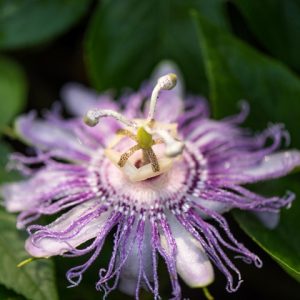 11:30 AM – 1:00 PM — 1.5 Contact Hours — Choose 1:
11:30 AM – 1:00 PM — 1.5 Contact Hours — Choose 1:
Resetting the 24-Hour Circadian Cycle, Part 2: Botanical Therapies for Resetting the Cycle
Mary Bove, ND
Continued from Part 1.Working with restorative herbs, eating habits and lifestyle modification can aid in resetting the day/night cycle, sleep cycle, glucose metabolism cycle, circadian hormonal cycles, and body temperature cycles to bring better health. Special focus on adrenal health through restoration and enhancement of the HPA axis function. Case histories.
OR
Ginseng: Taxonomy, Medicinal Uses and Product Adulteration
Mark Blumenthal
The ABC-AHP-NCNPR Botanical Adulterants Program recently came out with a paper detailing adulteration of medicinal ginseng products with other species and ingredients. Using this most recent paper as a starting point, Mark describes the latest initiatives in the program to uncover accidental and/or intentional adulteration and outright fraud in global herbal markets, which emphasizes the importance of relying on dependable sources for the herbal medicines we use.
2:00 PM – 5:30 PM — 3.25 Contact Hours:
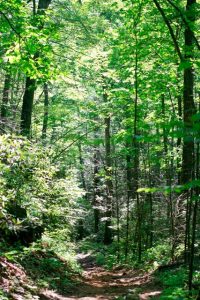
Intensive; Immune Checkpoint Inhibitors: Working with Botanicals for a Possible ‘Checkmate’ in Integrative Cancer Therapies
Donald Yance, RH(AHG), CN
Conventional immune therapies such as interleukin 2 (IL-2) and the new class of checkpoint inhibitors produce durable responses in only a small minority of patients, while being associated with significant, nearly universal toxicity. This presentation describes the methods of combining checkpoint inhibitors (mainly a class of drugs called Programmed cell death 1 [PDL-1] inhibitors), with botanical and nutritional programs for advanced cancer patients. Many of these patients were in clinical trials and were they only ones to responded successfully to treatment, with manageable side effects mostly of an autoimmune character. Botanical and nutritional medicine appears not only to mediate the side effects and toxicities of the drugs, but to act synergistically with the drug treatment against the cancer, thus providing a possible “checkmate’ in integrative cancer therapies. ($55) Read More
2:00 PM – 3:30 PM — 1.5 Contact Hours — Choose 1:
Alzheimer’s Disease: The Loss of Memory and Self
David Winston, RH(AHG)
New research suggests that amyloid plaques and tau protein are not the cause of most Alzheimer’s, rather they are the brain’s response to chronic inflammation and immune activation (caused by GI inflammation, hypertension, diabetes, sleep deprivation and nutrient deficiency). If this is correct (and multiple studies suggest it is) it is possible that lifestyle interventions, mental and physical exercise, herbs, diet and supplements may offer real benefits for reducing neuroinflammation and hyper-immune response, as well as promoting cerebral circulation, memory, focus and concentration. We still do not have a cure for Alzheimer’s but new data offers us real hope for reducing our risk of developing it.
OR
Preparing and Administering Herbal Medicines in a Nebulizer (Demonstration)
Kenneth Proefrock, ND
The nebulizer is a powerful and versatile delivery system. We address treatment for influenza, acute and chronic bronchitis and other acute respiratory illness, bronchiectasis, COPD, asthma/reactive airway disease and lung cancer. We describe the role that nebulization therapies can play in the disruption of biofilm-related conditions like mycoplasma, histoplasmosis and Lyme disease. And we discuss strategies for nasal sprays and eyedrops using the same or similar principles.
OR
Botanical Management of Urinary Pain
Jill Stansbury, ND
From bladder infections to renal calculi, urinary complaints are uncomfortable and can often be excrutiating. This presentation offers formulas to manage the discomfort of UTIs, interstitial cystitis and acute renal colic.
OR
Plant Walk: Establishing Plant Relations
Kathleen Maier, RH(AHG)
This experiential class teaches simple methods for developing intimate relationships with the plants around us. We employ techniques such as wide angle vision, sketching, organoleptics, journaling, and other methods in order to understand the depth of the relationships that are available to us with plants. We will also pay tribute to Goethe and his study of plant morphology.
4:00 PM – 5:30 PM — 1.5 Contact Hours — Choose 1:
Neuroinflammation Part 1: Environmental Causes, Mechanisms, Symptoms and Disease Presentations
Walter Crinnion, ND
Is your brain on fire? Chronic neuroinflammation can lead to headaches, chronic pain, ADHD, Alzheimer’s, Parkinsonism, and autism. These chronic health problems have proven to be difficult-to-treat, quite possibly because the neuroinflammatory component has not be adequately recognized and addressed. Neuroinflammation can be triggered by traumatic brain injury, high blood sugar, the Standard American Microbiome (from the Standard American Diet), and a number of common pollutants in urban air. Explores how inflammation starts, the common triggers and, in Part 2, how to treat this condition.
OR
Self-Care for Stress Reduction
Teresa Boardwine, RH(AHG)
Creating spa conditions to revitalize ourselves during stressful times, using herbs and natural therapies. Enjoy quiet space for renewal and learn techniques for nurturing yourself. (Class may go overtime but you’ll still be able to get to dinner).
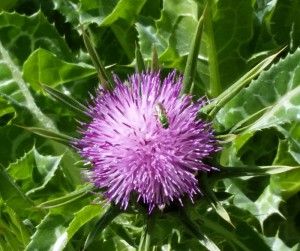
7:30 PM – 9:00 PM — 1.5 Contact Hours
Keynote: Humorous Health–Current Issues in Health, Diet, Pharmacy, Medicine & Related Issues as Seen Through Cartoons
Mark Blumenthal
This look at current issues in health, diet, pharmacy, medicine and related issues as seen through cartoons provides the best medicine of all. Mark’s collection of all new ‘toons from newspapers and magazines can show once again that laughter is the best medicine.
Sunday June 4
9:00 AM – 10:30 AM — 1.5 Contact Hours:
Panel Discussion: Evidence-Based Herbal Medicine: New Science and Ancient Tradition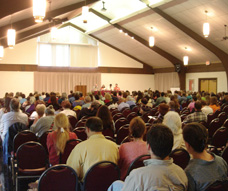
Jerry Cott, Jason Miller and David Winston
While modern medicine puts great store in double-blind, placebo-controlled evidence for the use of drugs, botanicals and other therapies in medicine, such studies are not always without flaws. Evidence of therapeutic success also comes to us from the healing traditions of Traditional Chinese Medicine, Ayurveda and more recently from the Eclectic physicians of the early 1900s. Hear from a scientific researcher from the front lines of research design, and practitioners who combine biomedical and traditional healing methods in their practices, to shed more light on this question of ‘evidence’.
11:00 AM – 12:30 PM — 1.5 Contact Hours — Choose 1:
The Vagus Nerve: A Two-Way Connection, Part 1—The Brain’s Effect on Immunity and Gut Health: Botanical and Lifestyle Therapies
Donald Yance, RH(AHG), CN
Recent studies have described the vagus nerve as a bi-directional information network between the gut and the brain and the most important element of the parasympathetic nervous system—the one that calms you down. Stimulation of the vagus nerve has been shown to relieve anxiety, reduce stress, heart rate and blood pressure, improve memory, immune function and sleep, all of which can reduce inflammation, allergic response and even headaches. This two-part presentation discusses how to increase the activity of the vagus nerve and promote an optimal state of wellness.
In Part 1 we discuss how positive emotions build physical health through this connection between the brain and the gut, and how techniques such as meditation, prayer, mindfulness, deep breathing and listening to relaxing music provide great benefit to patients with heart disease and cancer through the stimulation of the vagus nerve. Calming herbs and nutrients can also be of great benefit, and many of them, interestingly, are also soothing to the gut and help prevent GI problems (ulcers, colitis, IBS etc). Continued in Part 2 after lunch.
OR
Herbal and Nutritional Approaches to Hepatitis B & C
David Winston, RH(AHG)
New pharmaceutical treatments for hepatitis C are very effective, but the average cost for the 12 week treatment is $94,500. Due to the cost many people are not able get treatment until they show liver symptoms, which may be many years after being infected. This is unfortunate because research suggests that early treatment (before significant liver damage occurs) provides far better outcomes and a normal life expectancy. This “window of waiting” is where herbs, diet and nutritional supplements can offer major benefits by protecting the liver from inflammation and damage, reducing viral loads, preventing liver-induced GI damage, supporting the immune system and preventing adverse effects caused by pharmaceutical drugs used to treat Hepatitis B or C.
OR
Neuroinflammation, Part 2– Treatment Diet, Botanicals, Polyphenols, Meditation, Exercise and Yoga
Walter Crinnion, ND
Once you have identified that neuroinflammation is present, what can you do to put out the fire? Fortunately there are a number of powerful therapeutic tools to quench inflammation, including diet, botanicals, polyphenols, meditation, exercise and yoga. The Mediterranean diet, with its polyphenolic compounds and generous fiber content improves the microbiome and helps quench the flames. The use of high quality probiotics is of benefit as well. Botanical therapies for neuroinflammation are discussed in detail.
2:00 PM – 3:30 PM — 1.5 Contact Hours — Choose 1:
The Vagus Nerve, Part 2—The Gut’s Effect on our Brain Functioning: Botanical and Lifestyle Therapies
Donald Yance, RH(AHG), CN
In Part 2 we discuss the gut flora and its influence on immunity and brain functioning. Recent research shows that a lack of beneficial gut flora and toll-like receptors in the gut wall stimulate a neuroendocrine response to gut pathogens. Neurons respond to bacterial and viral components in the gut, leading to an inflammatory response. This leads to reduced stimulation of the vagus nerve, contributing to negative mental activity, even mental illness. Useful botanicals for normalizing the gut flora and gut wall, and therefore aiding brain functioning, include aloe vera, celery seed, chamomile, cissus, ginkgo, ginger and more.
OR
Differential Application of Botanical Immunomodulating Agents for Children in Light of Pharmacological Activity
Mary Bove, ND
Botanicals interact with the human immune system in a variety of ways, eliciting multiple types of physiological responses: from activating macrophages and balancing helper T1 and T2 cells to inhibiting inflammation by blocking pro-inflammatory cytokines. Understanding some of the basic pharmacological strengths of specific phytochemicals, the seasonal variation of pharamacologic activity, and the application in pediatric healthcare gives the clinician options for using immune botanicals as rapid response agents in acute situations (such as acute respiratory infections) and as long-term immune building agents (in allergies and other chronic conditions).
OR
Update on the Mainstream use of Botanicals and Dietary Supplements in the Mental Health Scientific Literature
Jerry Cott, PhD
We discuss clinical psychiatry trial results – both positive and not-so-positive, and some of the reasons that trial results can vary. There will be time for your in-depth questions on issues such as product choice, dose, trial design, etc.
2:00 PM – 5:30 PM — 3.25 Contact Hours:
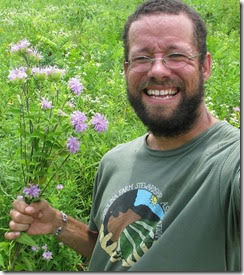
Intensive: Cooking with Wild Herbs and Foods with Marc Williams
Marc Williams
Marc leads us on a culinary adventure featuring prime examples of how wild foods can be medicine at the same time as being star attractions in a yummy array of food items. Some examples of foods featured include a wild kraut, probiotic hot sauce, edible flowers, wild fruit leather and a number of tonic beverages featuring tastes from the wild. This class provides a holistic understanding of what it takes to bring sustenance from field to fork and have fun while doing it!. ($55) Read More.
4:00 PM – 5:30 PM — 1.5 Contact Hours — Choose 1:
Botanical Interventions for Degenerative Neurological Diseases
Kenneth Proefrock, ND
The long-term impact of environmental toxicity and aging are described as we discuss the ways in which a nervous system becomes sick, and therapies to stop the pathological processes involved. We have a much larger elder population than ever before in history and there are specific concerns with maintaining cognitive health and a sense of agency and independence. We address Alzheimer’s disease/cognitive decline, Parkinson’s disease, ALS, peripheral neuropathies, spinal muscle atrophy, chronic encephalopathies and MS. Therapies include using phospholipids, and how to make liposomes from botanical glycerites with specific recipes and applications.
OR
Deep in the Tissues: Autoimmune Disease
Kathleen Maier, RH(AHG)
While there are distinct presentations on the spectrum of autoimmune disease, from MS to Hashimoto’s, there are similar patterns. This class describes the immune system from an energetic framework and the primordial understanding of the connection between kidneys, blood, bone marrow and immunity. We examine immune factors produced in the marrow, possible deep, lingering infections leading to deficiency and herbal remedies that address this complex disease.
Monday June 5
8:30 AM – 10:00 AM — 1.5 Contact Hours — Choose 1:
The Most Commonly used Pharmaceuticals, their Health Risks, Botanical and other Naturopathic Options
Walter Crinnion, ND
We are all aware of the tsunami of pharmaceutical agents that have overwhelmed our culture, and are being portrayed as ‘saviors’ of humankind. This talk examines the most commonly used pharmaceutical agents, presents their known risks (which often outweigh their potential benefit) and present far-more-effective natural treatments. Clinicians need to be aware of the potential side-effects of the medications that have become so commonplace in our society that many seem to think of them as just a normal part of life. For example, Prilosec or Prevacid (and other H2 blockers) can cause overt B12 deficiency leading to serious brain damage. Discover botanicals, supplements and lifestyle therapies that can be just as effective without these serious side effects.
OR
Entheogens and the Dying Process
Kathleen Maier, RH(AHG)
The rise in interest in the ceremonial uses of entheogenic (hallucinogenic) medicines has given us insights into these plants and our own endocrine function and physiology. This class looks at the chemistry of these plants, N,N-Dimethyltryptamine in particular, to see how these teachers give instruction for the death and dying process. Not to be used at transition, but as tools to navigate pathways of the process. We also talk about the effect of the popularization of these sacraments and the impact on indigenous cultures.
OR
Plant Walk—What Family is That?
Marc Williams
Delve into the major plant families of the US with ethnobiologist Marc Williams. Reinforce your plant identification skills by observing family patterns such as leaf, flower and fruit types. The family membership and characteristics of exotic invasive species are described. By understanding plant families, we can appreciate their potential ecological and ethnobotanical applications.
10:30 AM – 12:00 PM — 1.5 Contact Hours — Choose 1:
Traditional Diets: Nutrient-Rich Wild Foods
Jill Stansbury, ND
People have evolved to best utilize, and even thrive, on the nutrients available in different ecosystems – from low oxygen environs of the Tibetan plateau, to agrarian societies of the plains, to the high-fat diet of native Alaskans, to the pescetarian diets of various island people. This highly visual presentation explores the genetic influences that contribute to optimal human diets and discusses the superiority of wild foods and traditional diets compared to standard grocery store fare. It may inspire us to add a few new “old” foods to our own diets.
OR
Making Herbal Glycerites (Demonstration)
Teresa Boardwine, RH(AHG)
Glycerites are most useful for extracting the aromatic herbs which easily lend their volatile oils to the glycerin. Discover the sweetness of herbal extractions using vegetable glycerin and how to prepare them. We also discuss the best uses of glycerites, and when they may be better to use therapeutically than tinctures and other delivery systems.
There is not extra cost for the CNE program. Just sign in when you arrive, take an evaluation form, fill it out for lectures attended and a certificate will be issued at the event. We are delighted to offer this rich choice of lectures for CNE.
Online and phone registration now closed.



